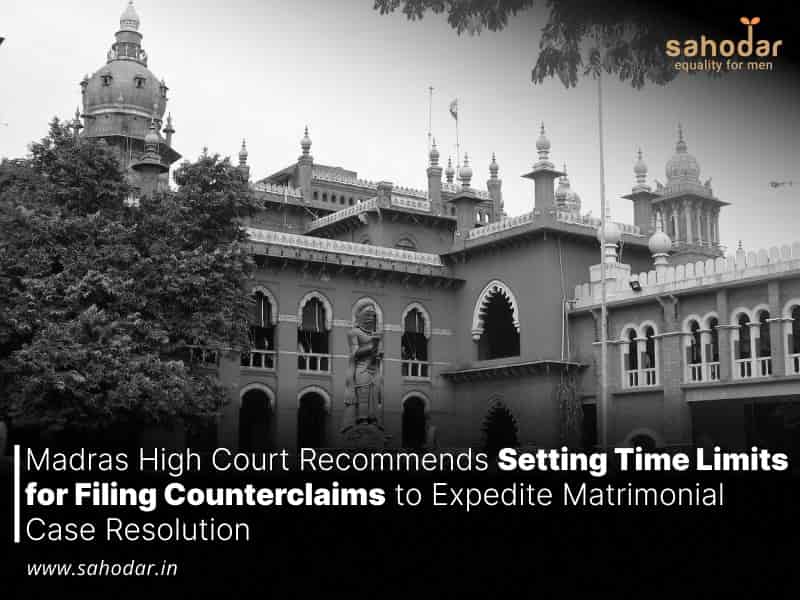The Madras High Court has proposed establishing a time limit for filing counterclaims in divorce or restitution of conjugal rights cases within matrimonial disputes.
Justices RMT Teekaa Raman and PB Balaji observed that in recent years, it has become common for parties to submit applications for counter-relief in divorce petitions or restitution of conjugal rights near the end of the trial, causing delays in case resolution. Consequently, the court suggested a time limit of 9 months to 1 year for filing such counterclaims.
The court instructed the registry to present these recommendations to the Administrative Side of the High Court. This would facilitate amendments to the rules under Section 123 of the CPC, allowing the High Court Rule Committee to establish limitations governing the Family Court Act.
“We find that certain period of limitation has to be fixed to curb this evil designed practice before the Family Courts which is consuming large hours of the family court and also causing innumerable years of delay in disposal of the Original Petition and hence, we find that the High Court Rules Committee (Civil) shall look into the matter and prescribe a limitation period that, in the event of any application being filed by one of the spouses to the marriage and that summons have been served on the opposite party, shall commence the point of limitation for filing the counter relief namely for the divorce petition / or / counter relief of restitution of conjugal rights and vise versa, to suggest, viz a period of 9 months to 1 year may be fixed, since it has become almost a regular practice before the Family Courts in mofusil areas to file another case between the very same parties seeking the counter relief only at the fag end of the trial of the first proceeding,” the court said.
The court issued these directions in response to an appeal filed by the husband against the Family Court in Tiruchirappalli, which had granted a divorce based on the wife’s petition. The Family Court had found that the marriage had irretrievably broken down and that the husband had committed cruelty by filing complaints against the wife, who was a judicial officer.
In the appeal, the husband argued that he had not committed cruelty and that an irretrievable breakdown of the marriage should not be a ground for divorce.
The wife countered that the husband had concealed his educational qualifications and subjected her to cruelty and harassment. She also claimed that her mother and herself had been assaulted and intimidated by the husband and his family. Additionally, the wife reported that the husband had filed false complaints against her with the Registrar (General) of the Madras High Court and the Chief Judicial Magistrate, Sriviliputhur, where she worked as a judicial officer.
The court noted that the husband’s actions appeared to be a deliberate attempt to undermine the wife’s dignity and self-respect. It found that the husband had inflicted both mental and physical cruelty on the wife and her family members, even kidnapping their child. His behavior was characterized as unlawful and overbearing.
The court further stated that making derogatory complaints to the spouse’s employer with the intent to damage their professional reputation and financial well-being constituted cruelty. Such actions demonstrated a lack of mutual respect and goodwill, essential for a healthy marriage. The court emphasized that even if these complaints were made after separation, they still amounted to cruelty.
Additionally, the court observed that using defamatory language against in-laws not only undermined their dignity and reputation but also eroded the trust and respect necessary for a healthy marital relationship.
Concluding that the husband was at fault and that his appeal lacked merit, the court dismissed the husband’s appeals.

